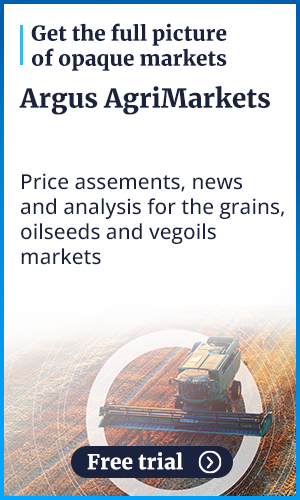European market
Nervousness and uncertainties continue to grip the agricultural commodities markets this April. The "pause" offered by Donald Trump has encouraged various countries to negotiate with the White House, but decisions remain uncertain. Only China continues its tariff escalation, now restricting the export of certain rare metals, thus putting some American industries at risk. These factors are not reassuring, and they also explain the recent drop in the dollar index, which has propelled the euro/dollar exchange rate to the highs of 2022. This is the main bearish factor in recent days for European wheat and corn.
While macroeconomic aspects overshadow other elements, it is worth noting the technical aspects such as the expiration of options for May contracts in wheat and rapeseed today, which naturally leads to position adjustments. Furthermore, the May rapeseed contract is soaring due to these positions, logically reflecting the seed shortage at the end of the campaign. The price gap with the new campaign continues to widen, in line with more comfortable fundamentals projected for the 2025 harvest.
On supply and demand, the risk of a slowdown in global trade and likely demand is worth noting, as it could limit market tension. In the short term, the weather market will be a factor to consider. Although the weather is favorable for now, models can change quickly. In Russia, low water reserves do not favor a dry spring, despite recent beneficial rains.
Lastly, Algeria's tender for soft wheat this week will be closely monitored, especially as diplomatic relations with France cool down once again.
American market
The American markets also remain under pressure due to uncertainty and Donald Trump's daily threats against global trade. Both the American and global economies are faltering, leaving commodities in a certain monotony.
In the field, wheat crop conditions continue to deteriorate, with 47 % rated good to excellent compared to 48 % last week. As for corn, planting work has begun, with 4 % of the area sown. This figure rises to 2 % for soybeans and 7 % for spring wheat, aligning with the average of recent years.
Commercially, it is worth noting the exceptional sale of 120,000 tons of corn to Japan yesterday, reinforcing the positive momentum of recent months.
In Argentina, changes in monetary policy could once again bring volatility to the peso. At the same time, rumors are growing regarding a potential increase in export taxes in the coming months. Such a decision could encourage local producers to accelerate sales before the tariffs are implemented.
Black Sea market
Click here to request full access to the AgriMarkets report to find out more about the Black Sea region, and follow price trends in Russia on a daily basis.





